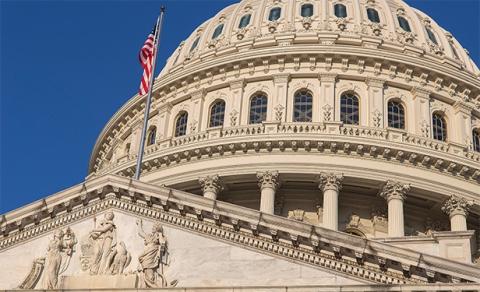Associations Cheer Stimulus Package, Seek Further Aid

As of Sunday night, associations across the travel and hospitality world were able to celebrate a stimulus package to boost the U.S. economy’s recovery from the pandemic.
The bill offers much-needed assistance to airlines, hotels and tourism groups desperate for the world to re-open.
“We can’t emphasize enough how desperately needed this funding is, or how much this action by Congress will add momentum to a global travel and economic resurgence,” said Shane Downey, vice president of government and community relations for the Global Business Travel Association, in a statement when Congress passed the legislation.
The roughly $900 billion bill comprises $325 billion in small business relief, including $257 billion for the PPP, and expands PPP access to include 501(c)(6) organizations with 300 or fewer employees; 15% or less in lobbying activities and receipts; and less than $1 million in spending for lobbying activities—all of which directly benefit the meetings and events world.
Despite the good news, GBTA was joined by fellow advocacy organizations, like the U.S. Travel Association and ASAE, in urging further assistance, presumably during the forthcoming Biden administration.
For instance, there is no assurance associations struggling to generate revenue will receive direct funding, ASAE said in a statement.
“This year-end relief package qualifies as progress,” said ASAE President and CEO Susan Robertson, CAE in the organization’s statement. “However, there are many deserving associations that will find themselves still unable to qualify for PPP loans as a result of the conditions set in this bill. No legitimate, well-purposed association should be left in the cold simply because they exercise their First Amendment rights to advocate on behalf of the industries or professions they represent.”
Specifically, ASAE is pushing for passage of the Pandemic Risk Insurance Act (PRIA), which would help protect associations and others from business interruption losses resulting from future pandemics or public health emergencies, and the Investing in Tomorrow’s Workforce Act, which would expand the use of “529” education savings accounts to cover the costs of professional certification and credentialing programs provided by associations.
A recent study by the American Hotel & Lodging Association projected that more than 2/3 of hotels (71 percent) would only be able to last six more months at current projected revenue and occupancy levels absent any further relief, with one-third (34 percent) saying they would only last between one to three more months. USTA estimates 4 million workers in the travel industry lost their job in 2020.
STR reports hotel occupancy remains at least 20 percent lower than this time last year, with the difference even starker in urban destinations. Business groups, such as meetings and trade shows, are slowly reintegrating in-person elements to what has been 2020’s virtual reality, but the number of travelers is not enough to overcome the drop in leisure travel.
“Seeing this bill make it across the finish line is a huge relief after months of struggle,” said USTA President and CEO Roger Dow in a statement. “This legislation is a lifeline for businesses and workers who have been hanging on by a thread.
Congressional action, coupled with the beginnings of vaccine distribution, is a double dose of good news for meetings, events and trade shows.
While many expect the effects of coronavirus to be felt in some form throughout the year - through mask mandates, other health protocols and perhaps reduced travel funds - there is reason to believe 2021 will see a return of more face-to-face gatherings. That, in turn, increases the number of travelers who will stay in hotels and eat and shop at local establishments.
Dow said, “Hopefully, now that this challenging legislative step has been overcome, we can head into the next Congress with momentum for further substantive measures to rejuvenate businesses and jobs.”
Don’t miss any event-related news: Sign up for our weekly e-newsletter HERE and engage with us on Twitter, Facebook, LinkedIn and Instagram!


Add new comment